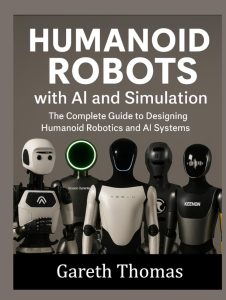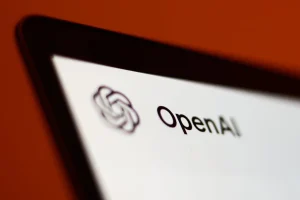The AI Race OpenAI and the Future of Intelligence

This week in AI brought a whirlwind of news, and OpenAI’s endeavors took center stage. The buzz surrounds advancements in AI models, particularly those by OpenAI. Talk of next-level models and intelligence are stirring discussions on what’s next. Let’s delve into the strides being made.
AI has captivated the tech space, with companies racing to outpace one another. OpenAI’s CPO shared insights on future plans, igniting enthusiasm. But it’s not just OpenAI; other companies are making moves too. What does this mean for AI’s future? Let’s break it down.
OpenAI’s Ambitious Goals
OpenAI’s recent interview reveals groundbreaking plans for scaling AI. According to them, we’re at the beginning of a new era. Their approach focuses on scaling inference time, promising to stay ahead of competitors. The tech world is waiting to see if they’ll maintain their lead.
Their current model, based on GPT-2, is just the start. As they push for more, they’re aiming for models beyond GPT-3. The idea is to stay three steps ahead of other companies. Is this assurance or overconfidence? Time will tell how their strategies influence the AI landscape.
The Next Big Leap: GPT-5?
Speculation about OpenAI’s next update is rife. Could GPT-5 be on the horizon? If it happens, it might redefine AI as we know it. With advancements in reasoning models, the expectations are high.
GPT-5 could bring significant improvements, much like the jump from GPT-3 to GPT-4. But OpenAI seems strategic, waiting for the right moment to unveil new developments. Their focus is on cutting-edge tech while considering competition.
Rivalry Heats Up: Anthropic’s Move
Anthropic is reportedly working on a unique AI model. As competition grows, each company seeks to carve its niche. Their focus might not be on releasing a typical reasoning model, but something different.
This shift indicates that AI is entering a new phase. Companies like Anthropic are embracing unique approaches to stand out. The anticipation builds as the tech community waits to see what these innovations hold.
Microsoft Stepping In
Microsoft recently announced enhancements to their AI agents. Their goal is to improve business functions using autonomous agents, a move that caught many by surprise.
These agents are designed to handle tasks efficiently, allowing humans to focus on more complex work. Microsoft’s initiative shows their commitment to AI evolution, aiming for widespread impact across different sectors.
By utilizing AI agents, businesses could achieve greater efficiency. Microsoft’s plan for a public release hints at potential growth in AI’s role in business operations.
Understanding the AI Agent Trend
AI agents are becoming increasingly integral in tech. They’re designed to perform routine tasks, previously done by humans. This development marks a shift toward efficiency.
Companies recognize the potential of AI agents. They’re not only boosting efficiency but also transforming how businesses operate. But with these benefits come challenges, as teams must adapt to this new assistance.
Looking forward, AI agents could revolutionize workplaces. They present an opportunity to streamline processes, though their integration needs careful planning.
The Threat of recursive improvement
A concept called recursive self-improvement is causing a stir. The idea is that AI could eventually improve itself without human input, leading to unprecedented intelligence.
For now, it’s mostly theoretical, but many in the tech industry are cautiously optimistic. If achieved, it could change the AI game entirely. However, the implications of such advancements require thoughtful consideration.
Some hope recursive improvement will drive significant progress. Others fear potential risks, emphasizing the need for regulation. This conversation is crucial as AI continues to evolve.
Comparing AI Video Models
AI’s role in video creation is expanding rapidly. Platforms now allow users to compare AI-driven video models based on input prompts.
This innovation helps users choose the best models for their needs. With a variety of options available, such tools make it easier to leverage AI for content creation.
While still emerging, AI in video could transform how media is produced and consumed. The ability to select the best AI for specific tasks is revolutionary.
Autonomous Vehicles: The Next Billion-dollar Market?
Nvidia’s CEO predicts autonomous vehicles will soon be a billion-dollar industry. The tech for self-driving cars is advancing, and cities are eager to adopt this technology.
Autonomous driving offers many benefits, including cost savings for companies. It’s a race to see who will dominate this emerging market. Given its potential, many are watching closely.
AI’s impact on everyday life could be profound once fully realized. The auto industry is just one area where AI might leave a lasting mark.
AI Companions: A Future Reality
There’s talk of AI companions that remember and respond to everything. This concept paints a picture of a future where AI is deeply integrated into daily life.
Such advancements could redefine human-computer interaction. People might eventually form ‘relationships’ with AI systems, altering how we engage with technology.
The AI landscape is evolving at breakneck speed, with companies like OpenAI leading the charge. As technology advances, the possibilities seem endless. Only time will tell how these developments will shape our world. It’s clear, though, that AI is here to stay. This race is far from over.







